That's because genius we dream in you, we believe in you, and we inspire in you no matter what happens. Speaking of years, your timeline project is celebrating its 6th Year since you started it next month. What a milestone indeed genius!Much appreciated.It's definitely been a passion project of mine for several years now. When I started working on it, back in 2017, I couldn't imagine that it would ever grow into what it's become. I credit you all, my beloved audience, for keeping the dream alive and keeping me coming back for more, no matter how busy life gets, and how discouraged I grow at times.
You are using an out of date browser. It may not display this or other websites correctly.
You should upgrade or use an alternative browser.
You should upgrade or use an alternative browser.
Blue Skies in Camelot (Continued): An Alternate 80s and Beyond
- Thread starter President_Lincoln
- Start date
Speaking of the Middle East, Mr. President @President_Lincoln , you did say in the first thread that the Lebanese Civil War still happens TTL. Will there be either the deployment of the Multinational Force in Lebanon (MNF) or the 1983 Beirut barracks bombings?I will definitely cover this as the timeline continues.
Also, another question, Mr. President, regarding the US Navy. Will the four Iowa-class battleships be reactivated throughout the 1980s like OTL?
Your timeline, if anything, was just incredibly superb in terms of the amount of detail and knowledge within it, showcasing a more hopeful United States and, by extension, the world.Much appreciated.It's definitely been a passion project of mine for several years now. When I started working on it, back in 2017, I couldn't imagine that it would ever grow into what it's become. I credit you all, my beloved audience, for keeping the dream alive and keeping me coming back for more, no matter how busy life gets, and how discouraged I grow at times.
Excellent questions! Yes. The Lebanese Civil War will likely still happen ITTL, unfortunately. I felt that the origins of that conflict are too deep for the butterflies here to completely erase it. That said, its course could very well go differently. I don't want to answer too many specifics on it quite yet to avoid possible spoilers.Speaking of the Middle East, Mr. President @President_Lincoln , you did say in the first thread that the Lebanese Civil War still happens TTL. Will there be either the deployment of the Multinational Force in Lebanon (MNF) or the 1983 Beirut barracks bombings?
Also, another question, Mr. President, regarding the US Navy. Will the four Iowa-class battleships be reactivated throughout the 1980s like OTL?
Vis a vis the Iowa-class battleships, it's a possibility! A lot of US defense policy and spending will depend on who is leading the administration during TTL's 1980s. I think some defense buildup was inevitable in response to the Cold War heating back up again. But would, for instance, RFK go all-in in the way that Reagan did IOTL?
Those are very kind words, sir. I thank you for them.Your timeline, if anything, was just incredibly superb in terms of the amount of detail and knowledge within it, showcasing a more hopeful United States and, by extension, the world.
@President_Lincoln how is gerrymandering in Blue Skies America compared to OTL? Worse? Better? Got rid of entirely?
Very good chapter!
Here’s hoping Brazil and Venezuela manage to survive as democracies. Perhaps RFK’s people will spot what is wrong with the latter and offer assistance.
Wonder if Pele will go into politics post-football career?
Cannot see Britain allowing Argentina a foothold in its islands. Hoping there are some Fireflies there to help out.
Looking forward to more about S. America.
Here’s hoping Brazil and Venezuela manage to survive as democracies. Perhaps RFK’s people will spot what is wrong with the latter and offer assistance.
Wonder if Pele will go into politics post-football career?
Cannot see Britain allowing Argentina a foothold in its islands. Hoping there are some Fireflies there to help out.
Looking forward to more about S. America.
Last edited:
Chapter 131
Chapter 131: You May Be Right - The Republicans Line Up for 1980

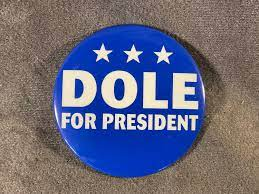
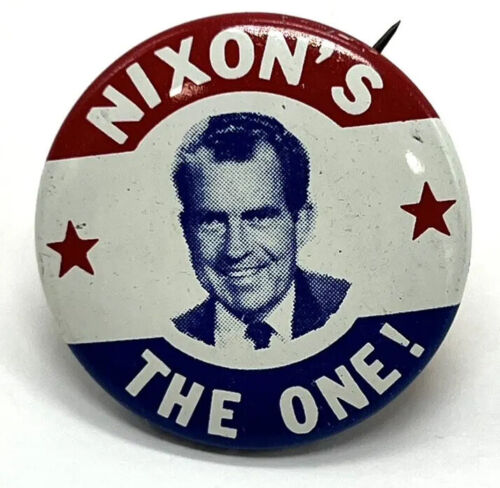
“You may be right
I may be crazy
Oh, but it just may be a lunatic you're looking for
Turn out the light
Don't try to save me
You may be wrong for all I know
But you may be right” - “You May Be Right” by Billy Joel
“It’s going to be hard for someone like me to run for president.” - Bob Dole
“Only if you have been in the deepest valley, can you ever know how magnificent it is to be on the highest mountain.” - Richard Nixon
“When you can’t make them see the light, make them feel the heat.” - Ronald Reagan
By the time that former vice president Ronald Reagan announced his second bid for President of the United States, on November 13th, 1979, in a nationally televised address from Los Angeles, he was the eighth Republican candidate to do so. Though at first glance this may seem oddly late, the Reagan campaign knew exactly what it was doing.
The announcement itself sought to capitalize on Reagan’s acting skills. He gave an address which showed him speaking directly to the camera in a very presidential-looking office. During the speech, he never directly mentioned President Udall, but called the current administration's energy policies an "utter fiasco" and blamed government spending and deficits for still-high inflation. Borrowing a phrase from Franklin D. Roosevelt’s 1936 acceptance speech at the Democratic National Convention, Reagan declared the 1980 election America’s “rendezvous with destiny”. He then went on to say, quote:
“We, today's living Americans, have in our lifetime fought harder, paid a higher price for freedom and done more to advance the dignity of man than any people who have ever lived on this Earth. The citizens of this great nation want leadership, yes, but not a "man on a white horse" demanding obedience to his commands. They want someone who believes they can "begin the world over again." A leader who will unleash their great strength and remove the roadblocks the government has put in their way. I want to do that more than anything I've ever wanted. And it's something that I believe with God's help I can do.”
In a press conference held the same day the speech aired, Reagan named Jack Kemp, a young libertarian congressman from Buffalo, New York as one of his campaign’s chief spokesmen. This was likely done to counteract Reagan’s age. At 68 years old by 1979, Reagan, if elected in November the following year, would be the oldest president in American history. Though Reagan hoped to downplay the age issue at every turn, often employing his considerable wit to disarm questions about his “fitness” for office, those questions came more often than he probably would have liked, given President Udall’s diagnosis and subsequent decision not to seek a second term.
Not that Reagan really needed to be worried. Even before his official announcement, he was far and away considered the frontrunner for the nomination. He had the backing of William F. Buckley and The National Review, who couldn’t believe their good fortune that, for once, their guy appeared to be the choice of the national party at large. The ultimate darling of the party’s conservative wing, Reagan was also gifted at selling conservative ideas to middle America. “The Great Communicator”, Reagan spoke calmly, clearly, and confidently. He made lowering taxes on “job creators” and empowering the national defense seem like the most rational course in the world. The only course, really.
The other seven candidates who’d announced before him struggled, from the get-go to break out of the former vice president’s enormous shadow.
There was John B. Anderson, Congressman from Illinois on the party’s liberal wing. A devout “Romney Republican”, Anderson’s campaign was probably Quixotic from the start, but he ran because he felt that there should be someone carrying the banner for the party’s moderate wing. There was perennial candidate Harold Stassen, whom once more, no one took very seriously. Phil Crane, also a member of the U.S. House from Illinois. As with Anderson, no one really gave the Chicagoan Crane much of a chance. Tennessee Senator Howard Baker, a favorite of moderates and well-liked by just about everyone in Washington for his ability to forge compromises, seemed like a strong candidate, but failed to create much buzz around his announcement. He seemed, like many of his contemporaries, to be angling for a cabinet post in a possible Reagan administration or even the VP slot.
Then there were those who actually stood a chance of giving the “Sheriff of Sacramento” a run for his money. These were still long-shots, to be sure. But they had national name recognition, and even some early endorsements of important party figures under their belt.
Kansas senator Bob Dole was, to be frank, not exactly the most exciting candidate in the world. Compared to former vice president Reagan, Dole lacked charisma, and struggled to build a base for himself amidst the rank and file members of the party. Largely seen as an expert on agricultural matters, Dole had worked with Democratic colleague George McGovern (D - SD), first in the Senate, and later while McGovern served as President Udall’s Secretary of Agriculture, to help make programs like food stamps more efficient and less prone to fraud. Dole’s primary goals in public life were to end hunger in the United States and to advocate for individuals with disabilities. Both were noble goals, but were seen as somewhat niche, especially for a Republican. Where Dole did find early support, however, was from what remained of the “party establishment”.
Mostly consisting of Romney-ite, “country club” Republicans, Dole’s base saw President Bush’s selection of Ronald Reagan in 1972 for the vice presidency as a one-time “deal with the devil” which had since served its purpose. It united the party and put an end to the GOP’s internal blood feud in the wake of President Romney’s assassination. Embracing Reagan and his conservatism had failed to re-elect President Bush to a second term of his own in 76. So, in their mind, why should they take another chance, this time with Reagan on top in 1980? Indeed, with popular incumbent Mo Udall forced to stand aside due to his health, 1980 seemed winnable. The party however, needed to not screw this up. They needed an inoffensive, moderate candidate who could appeal directly to middle America. Bob Dole was the Senator from Kansas. It didn’t get much more middle America than that. It also did not get much more inoffensive (or bland) than Bob Dole, either. During his time as Chairman of the Republican National Committee, Dole had made many allies on whom he could now call for support.
Somewhat damaging to Dole’s strategy of courting moderates and liberals was the candidacy of Charles H. Percy, the senior Senator from Illinois. The third declared presidential candidate from the “Land of Lincoln”, Percy was by far the most-likely of the three to be taken seriously by the country at large. Well known and well-respected, especially for his mastery of business and foreign policy issues, Percy seemed to many the natural heir to the legacy of Republicans like Nelson Rockefeller and George Romney. That said, the “Eastern Establishment” that those men and Percy alike represented grew smaller and smaller, weaker and weaker with each passing GOP primary. Though they remained popular in the purple states that elected them, liberal Republicans seemed to face an uphill battle nationally.
Alexander Haig, was, until stepping down in the autumn of 1979, NATO’s Supreme Allied Commander Europe. A decorated veteran of the Korean and Cambodian conflicts, as well as a former member of both the Kennedy Administration (as an advisor to Sec. of Defense Robert McNamara) and the Bush Administration (as National Security Advisor), General Haig entered the Republican primary for president shortly after resigning his NATO commission and returning home. When asked why he wanted to run for president, Haig stated that he felt no other candidate, Republican or Democrat, had an adequate grip on the current state of the Cold War. He argued that foreign policy was, as usual, being neglected in favor of domestic issues. Despite his credentials, Haig struggled to gain traction. The press, whose influence over the race was enormous at this early stage, largely dismissed him. The National Review, for instance, posited that Haig would make a fine Secretary of Defense in a possible Reagan Administration, but did not believe he possessed the political skills necessary to win an election.
Finally, there came the longest of long shots, the darkest of dark horses.
By the fall of 1979, Richard Milhous Nixon, former Vice President under Dwight Eisenhower and Secretary of State under George Romney was 66 years old. Having been out of elected office since 1960, and out of appointed office since 1977 (he served for several years as President Bush’s Ambassador to the United Kingdom), Nixon’s political career should have, by all accounts, been over long ago. He’d failed to win election to the presidency against John F. Kennedy. Two years later, he’d lost the race for governor of his home state of California to Pat Brown. Then, in 1968, he failed to attain the Republican nomination for president, losing to his eventual boss, Romney. In the minds of most in the political world, including, deep down, himself, Richard Nixon was a bonafide loser.
But… Nixon was not a quitter.
His whole life, he’d been struggling. Climbing out of poverty. Serving his country. Working the levers of political machines. Accruing friends and allies. Accumulating power. At the same time, he’d taken to nursing resentments, like so many vile children. He loathed “elitists” like the Kennedy and Bush families. Preppy, Ivy League, New England prep-school dorks, the whole lot of them. Unlike those rich kids, Dick Nixon had earned everything he had in life. His beloved wife, Pat, from whom Nixon grew increasingly distant, nevertheless stood by her husband. She agreed, begrudgingly to support him no matter what he did. Even as he sank into depression, a disease which he increasingly self-soothed with alcohol. His daughters were grown and out of the house. Julie with her husband, David Eisenhower. The great romance of Republican politics. Nixon had been so proud when he heard they’d gotten engaged. He only wished that they could have been married in the White House, where they met. Tricia had married Edward Cox, a Harvard law man. They were living in New York City now, where Cox worked. Despite his ever-growing sense of self-loathing, Nixon hoped his girls were happy. They deserved that much. They’d always been good to him.
Recalled from the Court of St. James with the coming of the Udall Administration, Nixon and his wife returned to America. Only the midterm elections the following year managed to restore a sense of purpose to the former Ambassador. Doing what he always did best, Nixon organized fundraisers, gave speeches in support of congressional and local candidates, and helped support the Republican Party of California in any way he could. Campaigning again, even for other candidates, got Nixon to thinking. 1980. What would it look like for him to take one, final shot at the job he’d always wanted, the one that he felt that he deserved?
It seemed ludicrous, even to him.
That road meant first securing the Republican nomination. He’d be facing some stiff competition. With Udall standing aside on account of what Nixon privately called “his brain disease”, every Tom, Dick, and Harry would be throwing their hat into the ring.
Worst among his would-be rivals, he knew, was Ronald Reagan. From California. Former vice president. He and Nixon had a lot in common. Privately, however, Nixon detested Reagan. He thought of the former actor as an opportunist and a backstabber, a wolf in sheep’s clothing, a sophist who turned his considerable oratorical skills toward whatever ideology he felt might bring him closer to power. Reagan was seen as a virtual shoo-in for the nomination. He seemed to have the race sewn-up. The Golden State’s GOP was firmly behind him, for one thing. This would severely hamper Nixon’s own chances. He couldn’t even use the old “favorite son” strategy. He’d have to challenge Reagan, beat him in an open primary.
Nevertheless, Nixon felt he had to try. If he lost, then so be it. His name had already been turned into something of a punch-line. Hadn’t it? The liberals and the Goldwater-ites alike scoffed at Richard Nixon, the puny little VP to Eisenhower. But if he won… He stood to gain all that he had ever wanted. Power. Respect. He’d put an end to all the laughter at his expense. He’d give it one final try.
He’d been bitten by what President Mo Udall would call “presidentialitis”.
…
Throughout the summer of 1979, the candidates assembled their respective campaign staff. For Reagan, that meant hiring William J. Casey to run his campaign. A former Chairman of the Security and Exchange Commission under Presidents Romney and Bush, Casey was also a former OSS Agent during World War II, among many other experiences. Casey advised Reagan not to rest on his laurels and expect to waltz his way to the nomination. That said, he couldn’t come off as seeming too harsh or combative, either. Reagan’s primary appeal as a candidate was his sunny optimism and upbeat, hopeful rhetoric. He spoke of “American renewal”. His campaign slogan became, “Come Home, America!”. The last thing he needed, as the frontrunner, was to punch down. It would make him look petty. Come the autumn, the former vice president would need the GOP united behind him to win the general election. Thus, Reagan’s campaign largely ignored attacks on the other candidates.
Meanwhile, Richard Nixon’s campaign would be helmed by a man who could not have been more different than William J. Casey. Brash, outspoken, and more than willing to fight dirty, Roger Stone was only 28 years old when the former Vice President and Secretary of State tapped him to serve as his chief strategist. First introduced to Nixon back in 1967, Stone had developed an almost religious reverence for Tricky Dick. As “Nixon’s man in Washington'', Stone kept the flame of Nixon’s reputation alive, keeping lawmakers aware of his capacity for brilliance, and his position as the ultimate “party man”. Stone cut his teeth, along with fellow “bomb-throwers” Paul Manafort and Lee Atwater, on Phyllis Schlafley’s ultimately unsuccessful primary challenge of President Bush in 1976. Despite the setback of the Congresswoman’s defeat, Stone, Manafort, and Atwater had used the campaign as an opportunity to test a hitherto unheard of type of vicious campaign ad, which tapped into the visceral, often dark and unseemly aspects of the American psyche. Race. Sex. Violence. These were themes that Stone and his ilk were more than happy to explore if it meant getting their guy elected.
As soon as Nixon gave Stone the go-ahead, the young strategist summoned Atwater and Manafort. Together, “the three musketeers' ' as they began calling themselves, set about developing their strategy for first the primaries, and then the general election. Their first objective was to make Nixon the de facto “Anti-Reagan” candidate. The field was far too crowded at the moment. That needed to change. Simultaneously, they would rehabilitate their boss’s “loser” image, and, finally, tear down Reagan’s.
It was a plan, the candidate had to admit, that might just be audacious enough to work.
Next Time on Blue Skies in Camelot: 1979 in Pop Culture
Thank you!Fantastic chapter!
Stone, Manaforte and Atwater are working for Nixon? Oh, boy. Let the political missiles fly. Reagan's bound to come out on top, but Nixon's campaign staff won't make it easy.
great chapter wasn't really expecting Stone or Manafort to work for Nixon but that makes it interesting I still think Reagan will be the nominee but it won't be easy. Can't wait to read about the pop cultureChapter 131: You May Be Right - The Republicans Line Up for 1980



“You may be right
I may be crazy
Oh, but it just may be a lunatic you're looking for
Turn out the light
Don't try to save me
You may be wrong for all I know
But you may be right” - “You May Be Right” by Billy Joel
“It’s going to be hard for someone like me to run for president.” - Bob Dole
“Only if you have been in the deepest valley, can you ever know how magnificent it is to be on the highest mountain.” - Richard Nixon
“When you can’t make them see the light, make them feel the heat.” - Ronald Reagan
By the time that former vice president Ronald Reagan announced his second bid for President of the United States, on November 13th, 1979, in a nationally televised address from Los Angeles, he was the eighth Republican candidate to do so. Though at first glance this may seem oddly late, the Reagan campaign knew exactly what it was doing.
The announcement itself sought to capitalize on Reagan’s acting skills. He gave an address which showed him speaking directly to the camera in a very presidential-looking office. During the speech, he never directly mentioned President Udall, but called the current administration's energy policies an "utter fiasco" and blamed government spending and deficits for still-high inflation. Borrowing a phrase from Franklin D. Roosevelt’s 1936 acceptance speech at the Democratic National Convention, Reagan declared the 1980 election America’s “rendezvous with destiny”. He then went on to say, quote:
“We, today's living Americans, have in our lifetime fought harder, paid a higher price for freedom and done more to advance the dignity of man than any people who have ever lived on this Earth. The citizens of this great nation want leadership, yes, but not a "man on a white horse" demanding obedience to his commands. They want someone who believes they can "begin the world over again." A leader who will unleash their great strength and remove the roadblocks the government has put in their way. I want to do that more than anything I've ever wanted. And it's something that I believe with God's help I can do.”
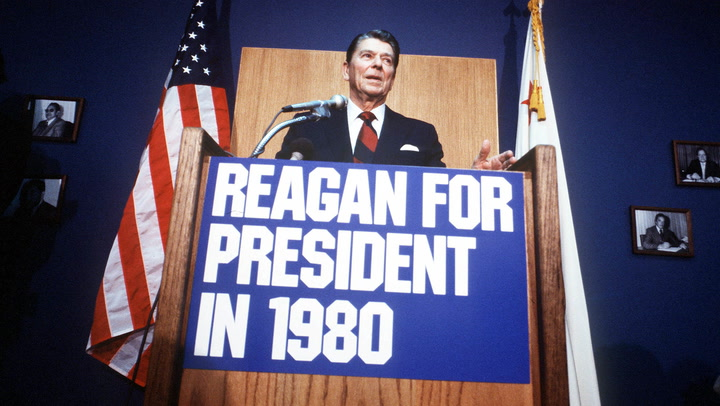
In a press conference held the same day the speech aired, Reagan named Jack Kemp, a young libertarian congressman from Buffalo, New York as one of his campaign’s chief spokesmen. This was likely done to counteract Reagan’s age. At 68 years old by 1979, Reagan, if elected in November the following year, would be the oldest president in American history. Though Reagan hoped to downplay the age issue at every turn, often employing his considerable wit to disarm questions about his “fitness” for office, those questions came more often than he probably would have liked, given President Udall’s diagnosis and subsequent decision not to seek a second term.
Not that Reagan really needed to be worried. Even before his official announcement, he was far and away considered the frontrunner for the nomination. He had the backing of William F. Buckley and The National Review, who couldn’t believe their good fortune that, for once, their guy appeared to be the choice of the national party at large. The ultimate darling of the party’s conservative wing, Reagan was also gifted at selling conservative ideas to middle America. “The Great Communicator”, Reagan spoke calmly, clearly, and confidently. He made lowering taxes on “job creators” and empowering the national defense seem like the most rational course in the world. The only course, really.
The other seven candidates who’d announced before him struggled, from the get-go to break out of the former vice president’s enormous shadow.
There was John B. Anderson, Congressman from Illinois on the party’s liberal wing. A devout “Romney Republican”, Anderson’s campaign was probably Quixotic from the start, but he ran because he felt that there should be someone carrying the banner for the party’s moderate wing. There was perennial candidate Harold Stassen, whom once more, no one took very seriously. Phil Crane, also a member of the U.S. House from Illinois. As with Anderson, no one really gave the Chicagoan Crane much of a chance. Tennessee Senator Howard Baker, a favorite of moderates and well-liked by just about everyone in Washington for his ability to forge compromises, seemed like a strong candidate, but failed to create much buzz around his announcement. He seemed, like many of his contemporaries, to be angling for a cabinet post in a possible Reagan administration or even the VP slot.
Above: Congressman John Anderson (R - IL); Congressman Phil Crane (R - IL); Senator Howard Baker (R - TN); all from the GOP’s more liberal to moderate wing. Each seemed like a better prospective running mate for Reagan than a legitimate candidate in their own right.
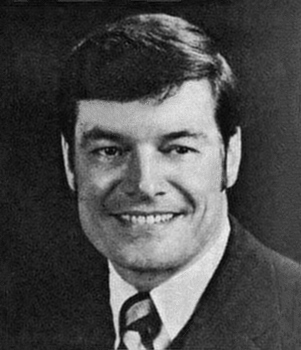
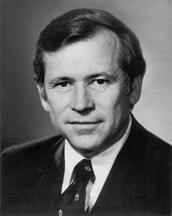
Then there were those who actually stood a chance of giving the “Sheriff of Sacramento” a run for his money. These were still long-shots, to be sure. But they had national name recognition, and even some early endorsements of important party figures under their belt.
Kansas senator Bob Dole was, to be frank, not exactly the most exciting candidate in the world. Compared to former vice president Reagan, Dole lacked charisma, and struggled to build a base for himself amidst the rank and file members of the party. Largely seen as an expert on agricultural matters, Dole had worked with Democratic colleague George McGovern (D - SD), first in the Senate, and later while McGovern served as President Udall’s Secretary of Agriculture, to help make programs like food stamps more efficient and less prone to fraud. Dole’s primary goals in public life were to end hunger in the United States and to advocate for individuals with disabilities. Both were noble goals, but were seen as somewhat niche, especially for a Republican. Where Dole did find early support, however, was from what remained of the “party establishment”.
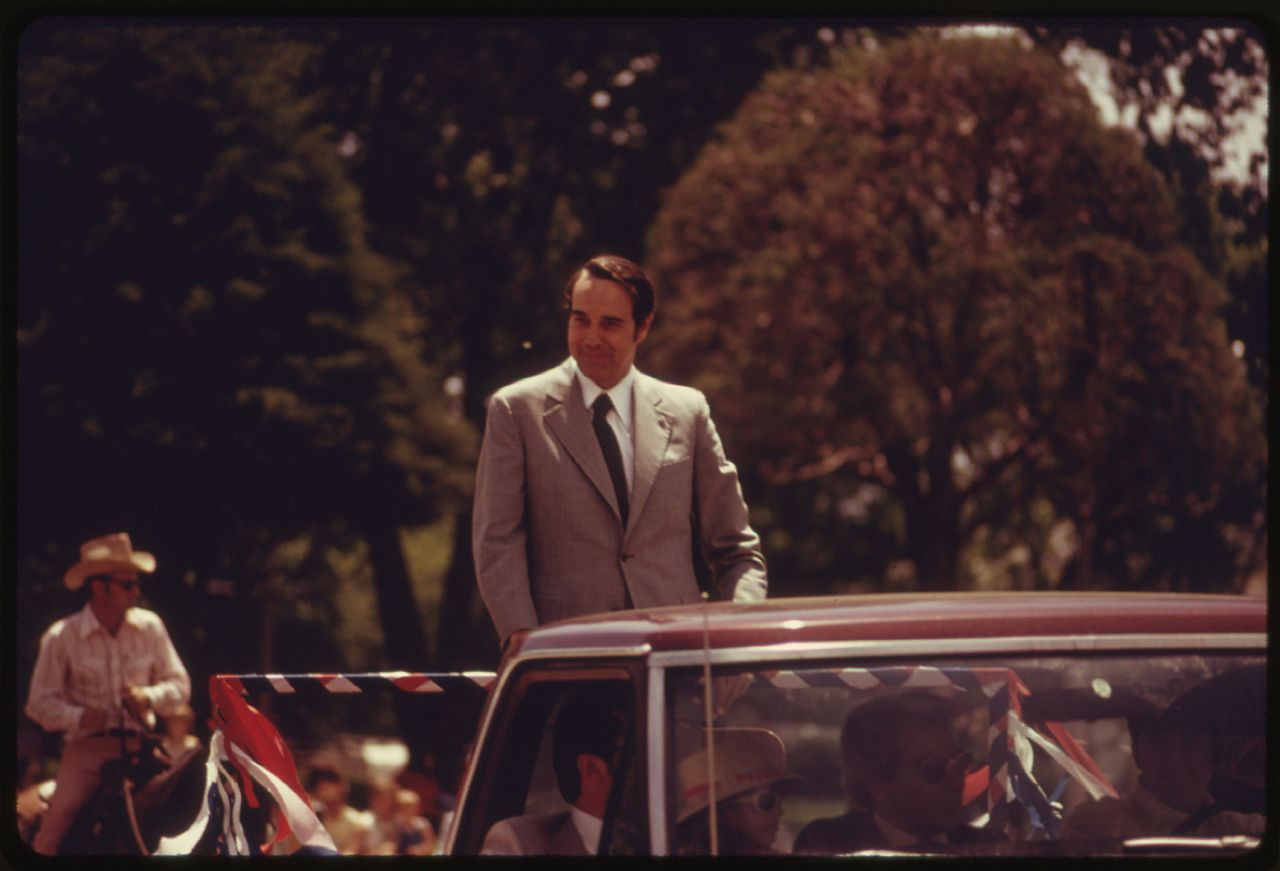
Mostly consisting of Romney-ite, “country club” Republicans, Dole’s base saw President Bush’s selection of Ronald Reagan in 1972 for the vice presidency as a one-time “deal with the devil” which had since served its purpose. It united the party and put an end to the GOP’s internal blood feud in the wake of President Romney’s assassination. Embracing Reagan and his conservatism had failed to re-elect President Bush to a second term of his own in 76. So, in their mind, why should they take another chance, this time with Reagan on top in 1980? Indeed, with popular incumbent Mo Udall forced to stand aside due to his health, 1980 seemed winnable. The party however, needed to not screw this up. They needed an inoffensive, moderate candidate who could appeal directly to middle America. Bob Dole was the Senator from Kansas. It didn’t get much more middle America than that. It also did not get much more inoffensive (or bland) than Bob Dole, either. During his time as Chairman of the Republican National Committee, Dole had made many allies on whom he could now call for support.
Somewhat damaging to Dole’s strategy of courting moderates and liberals was the candidacy of Charles H. Percy, the senior Senator from Illinois. The third declared presidential candidate from the “Land of Lincoln”, Percy was by far the most-likely of the three to be taken seriously by the country at large. Well known and well-respected, especially for his mastery of business and foreign policy issues, Percy seemed to many the natural heir to the legacy of Republicans like Nelson Rockefeller and George Romney. That said, the “Eastern Establishment” that those men and Percy alike represented grew smaller and smaller, weaker and weaker with each passing GOP primary. Though they remained popular in the purple states that elected them, liberal Republicans seemed to face an uphill battle nationally.
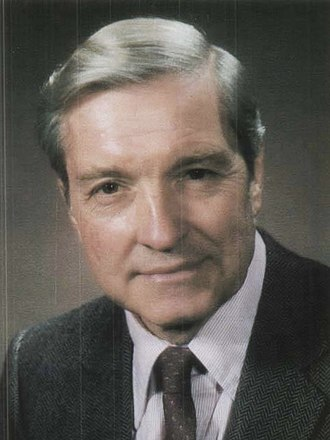
Alexander Haig, was, until stepping down in the autumn of 1979, NATO’s Supreme Allied Commander Europe. A decorated veteran of the Korean and Cambodian conflicts, as well as a former member of both the Kennedy Administration (as an advisor to Sec. of Defense Robert McNamara) and the Bush Administration (as National Security Advisor), General Haig entered the Republican primary for president shortly after resigning his NATO commission and returning home. When asked why he wanted to run for president, Haig stated that he felt no other candidate, Republican or Democrat, had an adequate grip on the current state of the Cold War. He argued that foreign policy was, as usual, being neglected in favor of domestic issues. Despite his credentials, Haig struggled to gain traction. The press, whose influence over the race was enormous at this early stage, largely dismissed him. The National Review, for instance, posited that Haig would make a fine Secretary of Defense in a possible Reagan Administration, but did not believe he possessed the political skills necessary to win an election.

Finally, there came the longest of long shots, the darkest of dark horses.
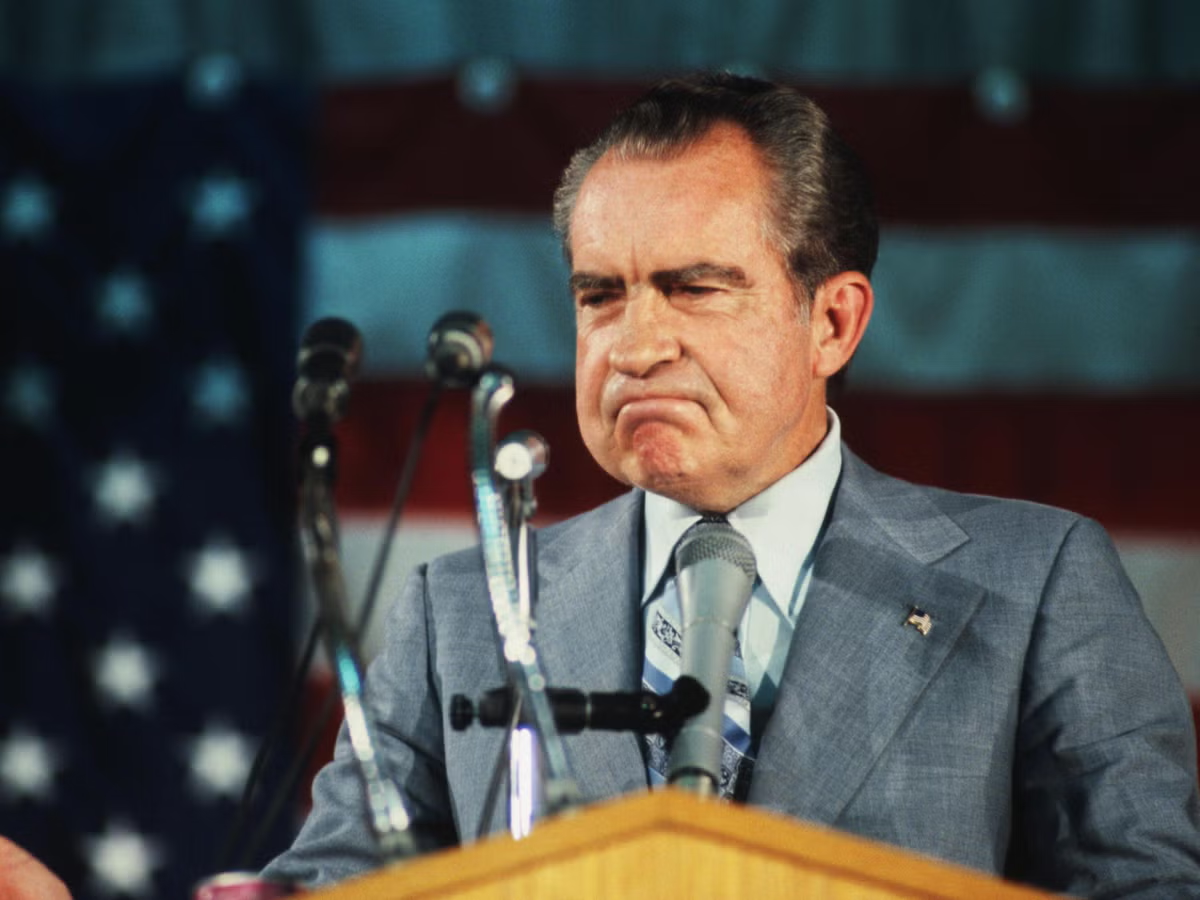
By the fall of 1979, Richard Milhous Nixon, former Vice President under Dwight Eisenhower and Secretary of State under George Romney was 66 years old. Having been out of elected office since 1960, and out of appointed office since 1977 (he served for several years as President Bush’s Ambassador to the United Kingdom), Nixon’s political career should have, by all accounts, been over long ago. He’d failed to win election to the presidency against John F. Kennedy. Two years later, he’d lost the race for governor of his home state of California to Pat Brown. Then, in 1968, he failed to attain the Republican nomination for president, losing to his eventual boss, Romney. In the minds of most in the political world, including, deep down, himself, Richard Nixon was a bonafide loser.
But… Nixon was not a quitter.
His whole life, he’d been struggling. Climbing out of poverty. Serving his country. Working the levers of political machines. Accruing friends and allies. Accumulating power. At the same time, he’d taken to nursing resentments, like so many vile children. He loathed “elitists” like the Kennedy and Bush families. Preppy, Ivy League, New England prep-school dorks, the whole lot of them. Unlike those rich kids, Dick Nixon had earned everything he had in life. His beloved wife, Pat, from whom Nixon grew increasingly distant, nevertheless stood by her husband. She agreed, begrudgingly to support him no matter what he did. Even as he sank into depression, a disease which he increasingly self-soothed with alcohol. His daughters were grown and out of the house. Julie with her husband, David Eisenhower. The great romance of Republican politics. Nixon had been so proud when he heard they’d gotten engaged. He only wished that they could have been married in the White House, where they met. Tricia had married Edward Cox, a Harvard law man. They were living in New York City now, where Cox worked. Despite his ever-growing sense of self-loathing, Nixon hoped his girls were happy. They deserved that much. They’d always been good to him.
Recalled from the Court of St. James with the coming of the Udall Administration, Nixon and his wife returned to America. Only the midterm elections the following year managed to restore a sense of purpose to the former Ambassador. Doing what he always did best, Nixon organized fundraisers, gave speeches in support of congressional and local candidates, and helped support the Republican Party of California in any way he could. Campaigning again, even for other candidates, got Nixon to thinking. 1980. What would it look like for him to take one, final shot at the job he’d always wanted, the one that he felt that he deserved?
It seemed ludicrous, even to him.
That road meant first securing the Republican nomination. He’d be facing some stiff competition. With Udall standing aside on account of what Nixon privately called “his brain disease”, every Tom, Dick, and Harry would be throwing their hat into the ring.
Worst among his would-be rivals, he knew, was Ronald Reagan. From California. Former vice president. He and Nixon had a lot in common. Privately, however, Nixon detested Reagan. He thought of the former actor as an opportunist and a backstabber, a wolf in sheep’s clothing, a sophist who turned his considerable oratorical skills toward whatever ideology he felt might bring him closer to power. Reagan was seen as a virtual shoo-in for the nomination. He seemed to have the race sewn-up. The Golden State’s GOP was firmly behind him, for one thing. This would severely hamper Nixon’s own chances. He couldn’t even use the old “favorite son” strategy. He’d have to challenge Reagan, beat him in an open primary.
Nevertheless, Nixon felt he had to try. If he lost, then so be it. His name had already been turned into something of a punch-line. Hadn’t it? The liberals and the Goldwater-ites alike scoffed at Richard Nixon, the puny little VP to Eisenhower. But if he won… He stood to gain all that he had ever wanted. Power. Respect. He’d put an end to all the laughter at his expense. He’d give it one final try.
He’d been bitten by what President Mo Udall would call “presidentialitis”.
…
Throughout the summer of 1979, the candidates assembled their respective campaign staff. For Reagan, that meant hiring William J. Casey to run his campaign. A former Chairman of the Security and Exchange Commission under Presidents Romney and Bush, Casey was also a former OSS Agent during World War II, among many other experiences. Casey advised Reagan not to rest on his laurels and expect to waltz his way to the nomination. That said, he couldn’t come off as seeming too harsh or combative, either. Reagan’s primary appeal as a candidate was his sunny optimism and upbeat, hopeful rhetoric. He spoke of “American renewal”. His campaign slogan became, “Come Home, America!”. The last thing he needed, as the frontrunner, was to punch down. It would make him look petty. Come the autumn, the former vice president would need the GOP united behind him to win the general election. Thus, Reagan’s campaign largely ignored attacks on the other candidates.
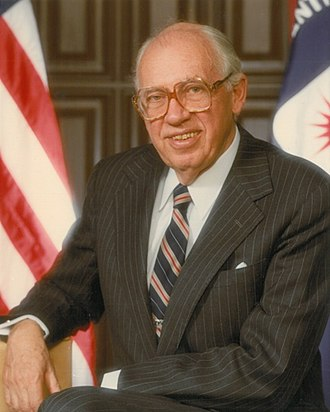
Meanwhile, Richard Nixon’s campaign would be helmed by a man who could not have been more different than William J. Casey. Brash, outspoken, and more than willing to fight dirty, Roger Stone was only 28 years old when the former Vice President and Secretary of State tapped him to serve as his chief strategist. First introduced to Nixon back in 1967, Stone had developed an almost religious reverence for Tricky Dick. As “Nixon’s man in Washington'', Stone kept the flame of Nixon’s reputation alive, keeping lawmakers aware of his capacity for brilliance, and his position as the ultimate “party man”. Stone cut his teeth, along with fellow “bomb-throwers” Paul Manafort and Lee Atwater, on Phyllis Schlafley’s ultimately unsuccessful primary challenge of President Bush in 1976. Despite the setback of the Congresswoman’s defeat, Stone, Manafort, and Atwater had used the campaign as an opportunity to test a hitherto unheard of type of vicious campaign ad, which tapped into the visceral, often dark and unseemly aspects of the American psyche. Race. Sex. Violence. These were themes that Stone and his ilk were more than happy to explore if it meant getting their guy elected.
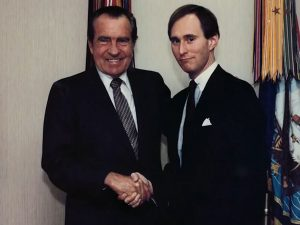
As soon as Nixon gave Stone the go-ahead, the young strategist summoned Atwater and Manafort. Together, “the three musketeers' ' as they began calling themselves, set about developing their strategy for first the primaries, and then the general election. Their first objective was to make Nixon the de facto “Anti-Reagan” candidate. The field was far too crowded at the moment. That needed to change. Simultaneously, they would rehabilitate their boss’s “loser” image, and, finally, tear down Reagan’s.
It was a plan, the candidate had to admit, that might just be audacious enough to work.
Next Time on Blue Skies in Camelot: 1979 in Pop Culture
Worffan101
Gone Fishin'
"Literal criminal or vile bigot...literal criminal or vile bigot...who to choose?"Please lord in heaven, let Reagan win! Don’t make way for Tricky Dick!!
I just want Reagan to be the nominee so that RFK can beat the pants off him and America can show Reagan and Falwell for that matter that America is moving forward and not backwards to the 1950s"Literal criminal or vile bigot...literal criminal or vile bigot...who to choose?"
Amen to that I don't like Reagan but a least he's not a crook as far as we knowPlease lord in heaven, let Reagan win! Don’t make way for Tricky Dick!!
Impressive chapter genius! Reagan, Dole, and Nixon would fight each other to get that nomination whatever it takes. They're prepared by any means necessary and loved to play dirty politics just to ruin their images. This is going to be a wild ride indeed geniuses, but Reagan will win the Republican Presidential Nomination for 1980. Whoever his running mate would be, we're in for the surprise of our lives. I'm just waiting for the Democratic Presidential Nomination for 1980 as well, Bobby Kennedy will sure and no question get that nomination. For now geniuses, let's get into the Pop Culture of 1979 in the next chapter updates. I just hope that the 80's would've been nice and kind to the Bee Gees and Andy Gibb ITTL.
Last edited:
Feel bad for John Anderson; I hope there’s some good that comes from this failed campaign
AeroTheZealousOne
Monthly Donor
You're on fire lately, Mister President! Enjoyed the recent updates, and looking forward to the future as the Seesaw Seventies come to a close!
Thanks, Aero! Happy to hear you liked it. 😁You're on fire lately, Mister President! Enjoyed the recent updates, and looking forward to the future as the Seesaw Seventies come to a close!
Fantastic chapter! Personally I'd be voting for Charles Percy or Harold Stassen if I was a Republican and lived in the Blue Skies TL. Nixon vs Reagan vs Dole is going to be a blood sport! Stone and Manfort working for Nixon, I wasn't expecting that. Man are they going to use every trick in the book to hurt Reagan. *eats popcorn excitedly* Bring it on
Share: